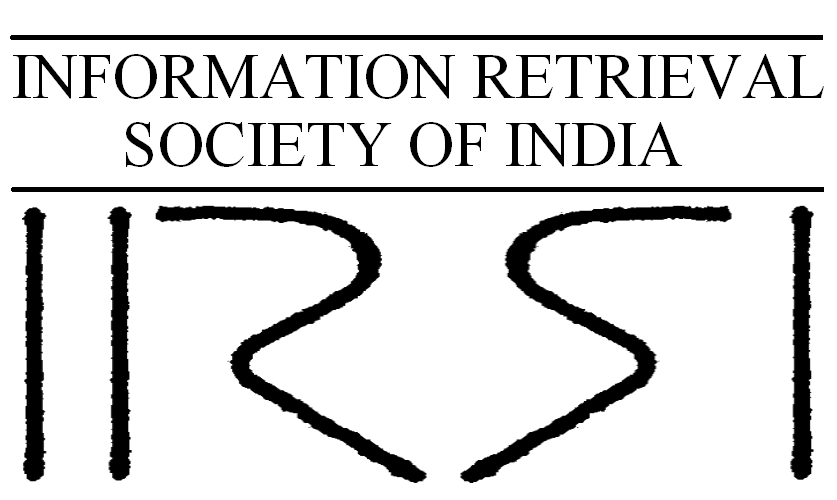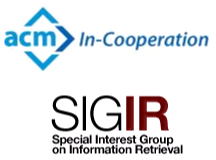FIRE 2018
Forum for Information Retrieval Evaluation
DAIICT , Gandhinagar
6th - 9th December
Knowledge graphs and Information Retrieval: A symbiotic relationship
Sumit Bhatia (IBM India Research Lab)
6th December (Afternoon Session)
Knowledge Graphs are becoming increasingly crucial in knowledge and data management applications as they afford a semantic structure to the underlying data. They form crucial components of modern web search engines, state-of-the-art question answering systems such as IBM Watson, and are used in a variety of domain-specific applications. In this tutorial, we will cover the symbiotic relationship between information retrieval and knowledge graphs. First, we will cover the basics of Knowledge Graph construction and their applications for various information retrieval tasks such as query understanding, query expansion, and entity-oriented search. We will then describe how classical information retrieval methods can help improve the search and management of structured data in large- scale knowledge graphs. We will cover applications such as context-sensitive exploration of knowledge graphs, discovering implicit and "hidden" information in knowledge graphs, etc. Lastly, we will present case studies describing our experiences with IBM Watson's Knowledge Graph and its applications in life sciences and intelligence domains.
Deep Learning Based Approach to Build a Conversational Agent and Practical Challenges
Manoj Kumar Chinnakotla, Kedhar Nath Narahari, Puneet Agrawal
(AI & Research division in Microsoft India and USA)
6th December (Morning Session)
Deep Learning based Question Answering (QA) focuses primarily on providing the most relevant answer to a given query, and has been around for a while. However, as AI systems move towards building conversational interfaces (for example, Facebook M, Cortana, Siri, and Orat.ai) where humans and systems work collaboratively to achieve their goals, it becomes important to model the context surrounding the conversation, since the system is not only responding to a question, but needs to answer in the context of the history of the exchange. Being able to respond according to the context and respond relevantly like a human being, makes building general purpose conversational agents a challenging task. Proposed Content of tutorial In this tutorial we will cover the following key topics:
- Introduction and rise of conversational agents
- Posing conversational agents as an IR based ranking problem
- Basic Architecture of an IR based conversational agents
- Building of a chat index to retrieve responses
- Challenge of localized language and code mixing while building chat index
- How to take context into account during ranking
- Generative approaches and comparison with IR based approaches
- Online and offline mechanisms to measure conversational quality
- How to deal with offensive / troll user behaviors
- Handling emotions and understanding user emotions
- Learnings from deployment of an industrial scale chatbot
- Conclusion and QnA.






